1.
The work of the Italian sociologist Alessandro Dal Lago includes a contentious book entitled Genocidi animali (2018). Written with two friends, Massimo Filippi and Antonio Volpe, the slim volume caused controversy for using the word ‘genocide’. This article, beginning with a biographical narrative, looks at the “history of philosophers’ indifference towards the animal world”.
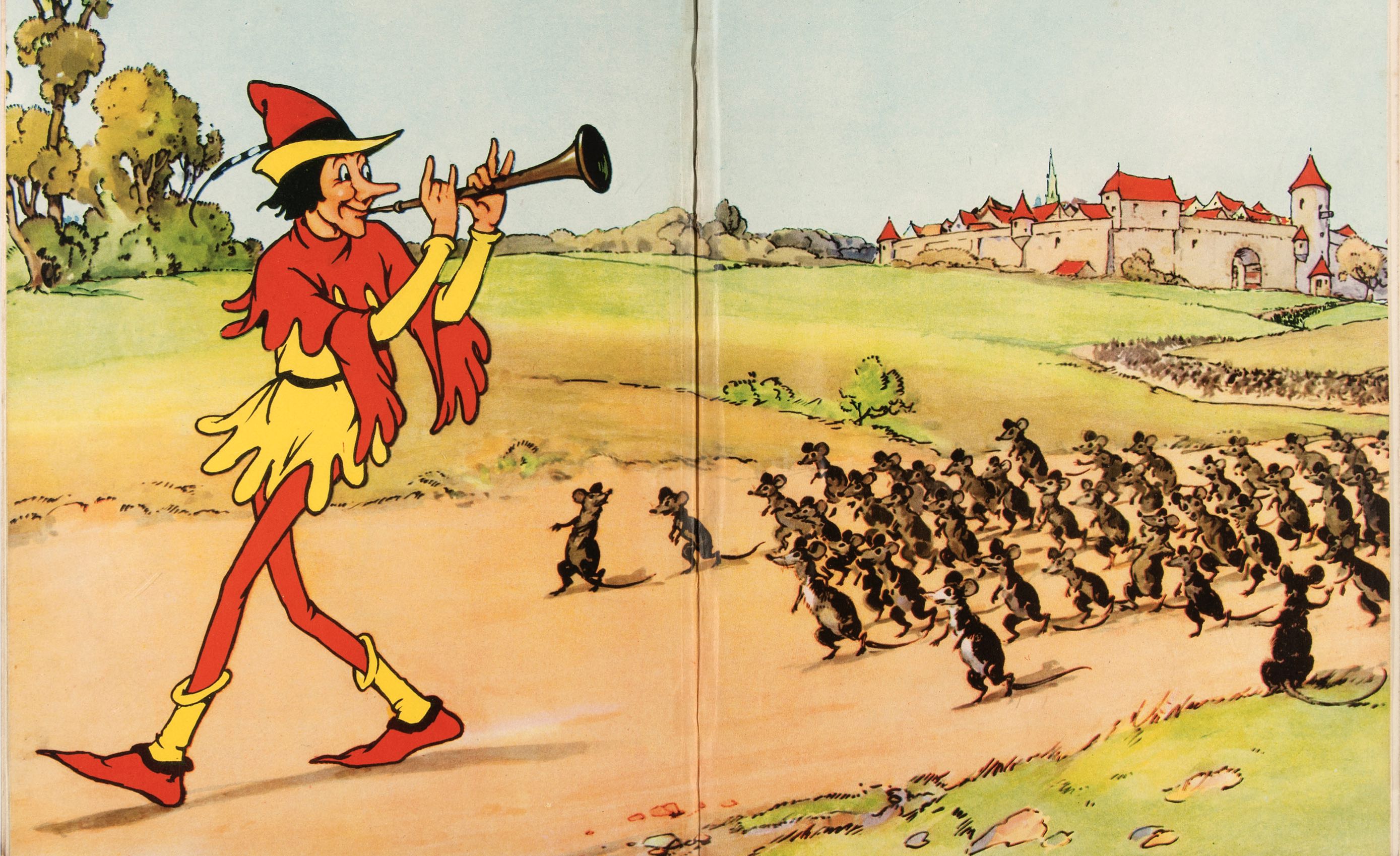
When it was suggested that I should write a brief article on philosophy and animality for this magazine, I did not think it would be such a difficult task. After all, I thought, in recent years the subject has been amply addressed by philosophers, the literature has become substantial and there are countless academic theses… But the problem lies precisely in this abundance. What could I say that would be new? How could I avoid the temptation to get by on a little erudition? In the end, I decided to tackle the question from an indirect angle, by talking about the bad conscience of philosophers in relation to animals, but from the starting point of my own experience as a thinker (I am not a philosopher in the strict sense, much less an academic one).
In the last twenty years of my life I have felt a growing distaste for the eating of meat. This is not merely a question of health. In my case, my unease grew out of the obvious contradiction between my love for certain domestic animals, like cats, and indifference towards creatures that had once been alive and ended up in one form or another on my table. So bit by bit I gave up beef, lamb, pork and small land animals. And then fish, starting with the biggest ones. However, I am not vegan: I like cheese – if it is not the product of intensive farming – and I cannot completely give up shellfish. My journey towards a vegetarian diet has been long and full of contradictions. In the recent past, if people invited me to dinner without knowing my inclinations, I would try not to embarrass them and would even eat pasta with a meat sauce, despite knowing what it contained. In these cases, I would simply make vague reference to some digestive problem and after praising the cook I would say that I preferred to eat lightly. As you can see, I do not lack a talent for hypocrisy.
However, until about a year ago, I gradually reduced my consumption of animal proteins to practically zero. All things considered, becoming a de facto vegetarian had made me feel better and feel able to live with my conscience. Then something unexpected happened. Over the course of a couple of months, although I had no particular symptoms, I was diagnosed with two tumours, one of which was on the intestine. I had an operation and I am apparently cured. However, I am much thinner, my muscle tone is extremely reduced and since I cannot eat vegetables – my doctors have forbidden it – I have been forced to return to a diet of animal protein. So I have started to eat fish again (meat continues to disgust me). In brief, I have partially betrayed myself, however essential it has been for me to do so. Obviously, when my convalescence is truly over, I will become a vegetarian again.
I took the liberty of setting down these personal notes principally so that I could put my cards on the table. If we take a moral stance – as I have done in rejecting meat – we should not try to get away with keeping delicately (or hypocritically) silent about our own practical choices, including weaknesses and contradictions. Candour, which we learnt to practice the moment that Nietzsche burst onto the scene of thought, also allows us to challenge our interlocutors, appealing to their sincerity: I have revealed my hand, what about you? In matters that relate not to ethics in the abstract sense, but to daily moral decisions, here and now, this is not an idle question.
"In the book [Genocidi animali], when asked whether I thought it possible to talk of genocide in relation to the daily extermination of animals, I replied in the affirmative, based on the very concept of genocide, that is to say the killing of an entire genus of living beings."
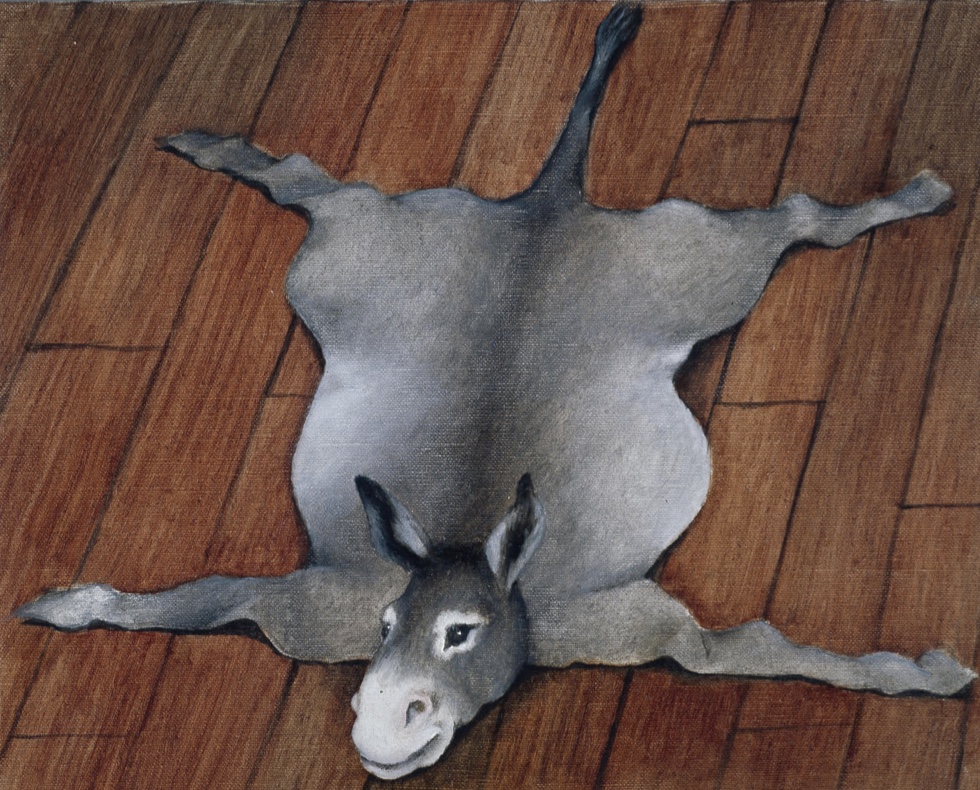
Teresa Ferrand, Peau d'Âne Donkey, 2003
© Photo: Laura Castro Caldas
On the basis of these considerations, I will now address the question of the philosophical bad conscience that pertains to animals. In this matter too I have been personally implicated, as I will explain shortly, although not as a practical actor, with all the contradictions that involves, but as a writer and thinker. To put it briefly, in 2018 – together with two friends, Massimo Filippi and Antonio Volpe – I published a small book with the title Genocidi animali.1 It is in reality a discussion between two animalist philosophers and myself, someone who in his own way is passionate about fundamental moral questions, especially violence towards other creatures, despite a marked scepticism towards the human ability to shake off a propensity for killing other living things, human or not.
In the book, when asked whether I thought it possible to talk of genocide in relation to the daily extermination of animals destined for our tables, I replied in the affirmative, based on the very concept of genocide, that is to say the killing of an entire genus of living beings. In this context I quoted what is for me a definitive text on the question, J.M. Coetzee’s The Lives of Animals, a book that I read for the first time around fifteen years ago.2 This novella, which profoundly moved me and is not unconnected with my decision to stop eating meat, is a story, or rather a metafictional narrative, whose protagonist is Elizabeth Costello: an elderly and disenchanted writer who gives two lectures at a New England university, where her son teaches physics (‘The Philosophers and the Animals’ and ‘The Poets and the Animals’). She also takes part in a debate with a college professor around their respective positions. The book additionally contains various meta-meta-narrative interventions from anthropologists and philosophers (Doniger, Garber, Smuts and Singer) who in various ways question the relationship between humankind and animals.
[...]
*Translated by Emma Mandley / Kennistranslations
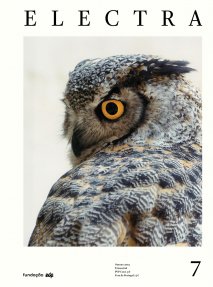
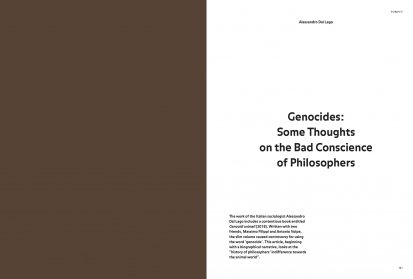
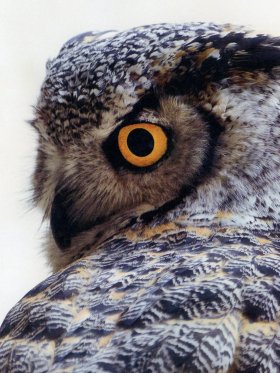
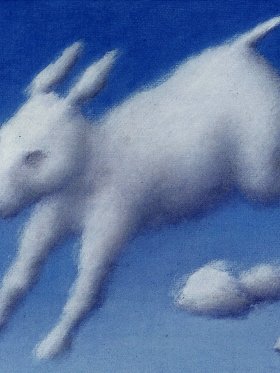
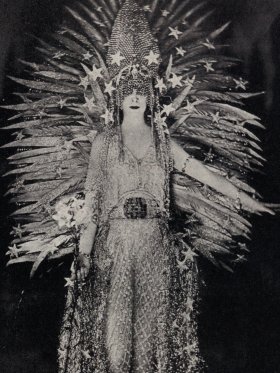
Share article